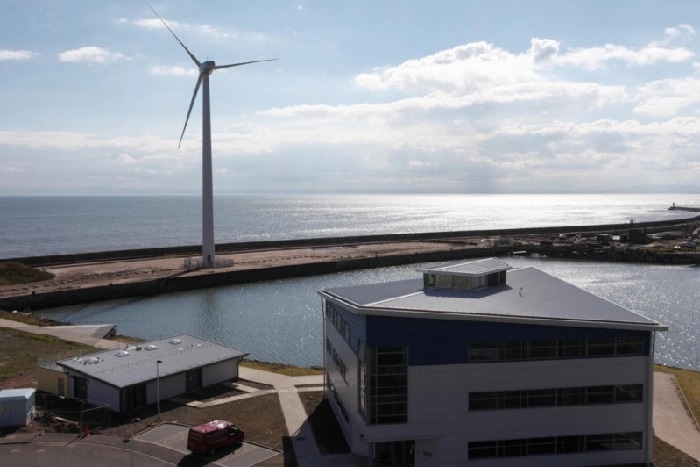Jul 10 2019
A Scottish company at the cutting edge of hydrogen technology is partnering with a European project to convert seawater into sustainable hydrogen fuel for island regions.
 Logan Energys facility in Levenmouth, Fife. Picture: Contributed by HANNAH BURLEY
Logan Energys facility in Levenmouth, Fife. Picture: Contributed by HANNAH BURLEY
Edinburgh-based Logan Energy has been selected as the hydrogen technology partner for the €3.6 million (£3.2m) Seafuel initiative, funded by the European Union.
The Tenerife-based project aims to demonstrate how renewable fuels can be used to create more sustainable transport systems.
Logan Energy will design and build a hydrogen generation and refuelling station which uses renewable resources, specifically solar-generated electricity, to convert seawater into hydrogen to fuel local transport on the island.
The Scottish firm is currently constructing the station at its technology centre in Wallyford and will deploy the unit in Tenerife at the end of the year.
Seafuel’s ambition is to pave the way for more renewable energy policies which promote clean and sustainable transport systems, while helping remote islands reduce their reliance on expensive fuel imports.
Upon completion, Logan Energy will work with Seafuel’s other project partners to review the feasibility of transferring the technology to similar island regions where transport accounts for around 30 per cent of fuel consumption.
Seafuel is co-financed by the Interreg Atlantic Area Programme through the European Regional Development Fund, which supports green initiatives among 36 Atlantic regions in five European countries.
Bill Ireland, chief executive of Logan Energy, said: “This project is unique in that it examines the conversion of seawater into hydrogen with the specific purpose of being used as transport fuel.
“Our extensive experience in Scotland of connecting renewable electricity generation to hydrogen production and refuelling makes us the right people for the job.
“It’s important to remember that this project is hugely significant not just for remote communities in Europe but around the world.
“The islands and their inhabitants rely on imported fossil fuels but can in fact become partially or wholly self-sufficient in terms of energy. The Seafuel project will go a long way to facilitating the transition to a low carbon economy.”
Logan Energy has designed, built and commissioned four hydrogen refuelling units in the UK and is currently constructing a further station for export to Germany.